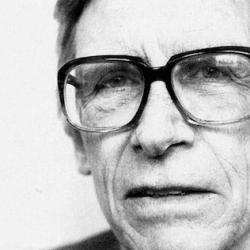John Rawls’s notion of “difference principle” is an alternative to a meritocratic regime, but it is also different from equality of result. As Michael Sandell explains in Liberalism and the Limits of Justice, Rawls denies that the difference principle eliminates distinctions between persons.
The difference principle aims at the problem of the arbitrariness of the distribution of talents, opportunities, inheritance (material and cultural). It attacks this question not by changing “the conditions under which I exercise my talents” but by transforming “the moral basis on which I claim the benefits that flow from them.”
And this shift from conditions to moral basis involves a shift in basic anthropology. The difference principle rests on the notion that my talents aren’t my own personal possession but a common asset: “No longer am I to be regarded as the sole proprietor of my assets, or privileged recipient of the advantages they bring. ‘The difference principle represents, in effect, an agreement to regard the distribution of natural talents as a common asset and to share in the benefits of this distribution whatever it turns out to be.’ In this way, the difference principle acknowledges the arbitrariness of fortune by asserting that I am not really the owner but merely the guardian or repository of the talents and capacities that happen to reside in me, and as such have no special moral claim on the fruits of their exercise” (70).
Sandel quotes Rawls to the effect that the lucky justly gain from their good fortune “only on terms that improve the situation of those who have lost out. The naturally advantaged are not to gain merely because they are more gifted.” Because “men agree to share one another’s fate,” the fact that their fates differ doesn’t seem so important (70-1).
Rawls’s principle is misguided, I think, and Robert Nozick’s critique gets to some of the problems. In order to sustain his theory, and maintain his Kantian credentials, Rawls has to claim that I am not being used as a means for others’ end; and his trick for maintaining that persons are ends rather than means is to propose a radical distinction between the person and his talents: Only the talents are being used as means, not the person. Nozick rightly objects that there’s not much left of me when I’ve been “denuded” of my talents. Rawls can escape this implication only by adopting an intersubjective notion of the person, which he elsewhere rejects (see Sandel’s summary of Nozick, 78-80).
Still, from a theological perspective, Rawls is mistaken in an interesting way. His difference principle has some resemblance to the Pauline conception of the gifts of the Spirit, which are given to members of the church for the sake of the community. Paul would agree with Rawls that we are but guardians or stewards of talents or privileges that we don’t deserve and didn’t earn. Rawls’s theory exemplifies the way democratic theory aims at something like a political replication of the ekklesia. Rawls even has a secularize theory of grace: The luck of privilege and talent which, like the grace of God, is wholly undeserved.
But Rawls’s theory is not an ecclesiology, and there is no Spirit. For Paul, the privileged have their privileges for the common good; but then he argues – out-democracying Rawls – that every member of the demos is privileged, gifted by the Spirit. For all his interest in equality, Rawls institutes what looks like a uni-directional flow of privilege; the phrase “those who have lost out” is the giveaway, for in the Spirit’s ekklesia, there are no losers, none who are simply recipients of the benefits of others.













